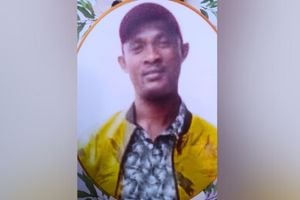Solar plant powers up Meru Hospital
What you need to know:
- The Meru Hospital solar project is part of a research initiative Project Shield (Solar Hospital Innovation and Energy Leasing Demonstrator).
- Shield seeks to find affordable ways for all of Kenya’s hospitals to solarise.
Meru Teaching and Referral Hospital hopes to save more than Sh1 million in power bills every month after installing a 228kW solar plant as part of a research project spearheaded by Oxford University.
The hospital, which spends up to Sh3 million every month on power bills, also has to spend about Sh40,000 a day on fuel during a blackout.
The Meru Hospital solar project is part of a research initiative called Project Shield (Solar Hospital Innovation and Energy Leasing Demonstrator).
The research is led by Prof Jacob McKnight, an associate professor at the University of Oxford's Health Systems Collaborative and Mr Ameet Shah CEO of Astonfield Solar – the Kenyan company that is installing the panels alongside its latest patented innovations.
According to Meru Teaching and Referral Hospital executive officer Dr Leah Moriasi, the project includes installing 396 solar panels and a smart metering system.
"The research will look into how health systems can be improved by utilisation of solar energy. As a hospital, we will have significant savings in electricity bills, fuel costs, and other inconveniences. Its success will guide future investments," Dr Moriasi said.
She noted that the hospital incurred losses during last year's frequent nationwide power blackouts that affected some lab equipment.
Mr Chris Sialo, a project manager with Astonfield Solar, said the solar plant will run all hospital operations at peak power production between 10am and 3pm.
"The capacity of the solar plant was arrived at after an extensive power consumption survey. We are installing through the grid-tied solar system, where the plant will supplement the national grid.
"When the solar plant is at its peak, it will switch off the grid and run the hospital. When there is cloud cover or low supply from solar, the nation grid kicks," Mr Sialo said.
He said through a smart meter system, the hospital management will be able to establish how much power was used from Solar and Kenya Power at any given time.
"The real-time power consumption reports enable the hospital management to plan better and advise on future improvements," he said.
Project Shield is funded by UK Innovate, which is part of the UK government, and is investigating how Astonfield Solar’s unique technology can be utilised to further reduce the costs of solarisation of Kenya’s hospitals.
Prof McKnight explained, “In line with the Kenyan government’s climate policy, we want to prove that solar power makes sense for all Kenyan hospitals and we hope that Meru is the first of many adopting our approach”.
Prof McKnight is also involved in another health systems development initiative dubbed 'A novel extreme weather risk insurance system for Kenya' (Newrisk).
Newrisk seeks to encourage preparedness, planning and protection of Kenya's health systems from the effects of extreme weather.
The research is also ed by Prof McKnight and Mr Benjamin Tsofa, a health policy and systems research scientist at Kenya Medical Research Institute (Kemri).



